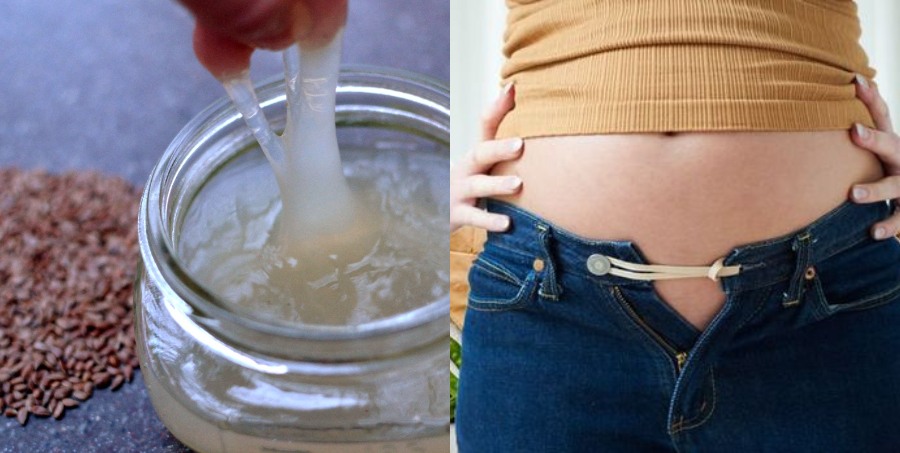When you start out on your weight loss journey, by following a healthy diet and exercise routine, the one thing that you start obsessing with is the “weighing scale.” Day after day, when you see the scale tipping in your favor, you get fixated with it and gain that confidence and motivation to work hard on yourself and shed some more weight. But there comes a stage during your weight loss journey when you actually don’t see any progress at all on the weighing scale and it’s called hitting the “weight loss plateau,” which is an inevitable phase during the journey to shed weight. During such a phase, when you don’t see any results for your hard work, it’s easy to get demotivated and jump off the weight loss wagon. You would start dreading the weighing scale which was your best friend in the beginning of the journey. But let us tell you, weight loss is not just about low numbers on the scale, there are a lot more numbers that you are probably overlooking that might be showing your progress. Getting to know more about these numbers will get you you excited again and jumpstart your sluggish weight loss journey all over again.


What’s Weight Loss Plateau?
When you are extremely dedicated to exercise and religiously follow dieting, in the beginning, you will see rapid weight loss, but after a point, you might notice that the weight is not dropping faster or is not moving at all. It’s the stage where you have hit plateau and it might get you frustrated. Weight loss plateaus can ruin your progress and make you lose focus. But we would like to motivate all of you guys who have hit the plateau and tell you that a plateau also means that you have lost a significant amount of weight and to lose more, you will need to make some changes to boost metabolism and fast track your progress, and get over the plateau. It also means you are getting closer to your goal weight, hurray! As we have mentioned previously, most people hit plateau during their weight loss journey and stop losing anymore weight altogether. This happens because of many factors but the most common one seems to be slow metabolism where your body burns fewer calories than earlier. However, with these tips, you can overcome your weight loss plateau.
8 Weight Loss Numbers That Matter More than the Weighing Scale:
1. Waist Size: Aiming to achieve that magical 26 inches of waist, well, it’s achievable with healthy dieting and regular exercise. We would like to emphasize that waist circumference should be less than 35 inches in women and lesser than 40 inches in men. A high waist circumference would mean chances of developing high blood pressure, sleep apnea, and diabetes later on. When you drop weight, your clothes become loose and your waist circumference reduces too. So, even if the numbers on the scale aren’t moving, check whether your clothes are becoming loose.
2. Blood sugar Level: Needless to say, obesity increases your risk factor to develop diabetes later in life. Once you start eating healthy, your fasting blood sugar would range between 100, and random sugars would be just about 140.
3. Improved Blood Pressure Levels: Systolic and diastolic are extremely important. Losing weight will make your systolic and diastolic numbers fall in the 120/80 range.
4. Step count of more than 10,000 Per Day: This number ensures minimum activity and movement through the day, but don’t just stop at 10,000 because once you lose weight, you wouldn’t feel tired to move around and being active in general.
5. Decreased Cholesterol Numbers on Lipid Profile: Ideally, with a healthy weight, total cholesterol should be less than 200 mg/dL for a healthy individual. Also, the “good cholesterol” in our body, HDL needs to be 60 mg/dL or more, and your triglycerides should be 150 mg/dL. Do remember that once you start losing weight, your LDL cholesterol (bad cholesterol) would drop beyond 100.
6. Number of hours you sleep each night: Once you start dropping weight, you would be able to sleep for 8 hours easily without staring at the ceiling for the majority of the night. Along with weight loss, exercise can help you sleep better, reduce snoring, and even cure insomnia, so count your sleeping hours in this case.
7. Body Mass Index: Body Mass Index is extremely important when one wants to know their risk factors concerning obesity-related diseases. If you are not sure about how BMI is calculated, here’s how you can do it. The ratio of your height and weight is BMI! The range of your BMI can determine whether you’re healthy or obese. If your BMI is in the range of 18.5 to 24.5, you are at a normal weight which is also a healthy range. If the BMI is ranging from 25.0 to 29.9, then you are overweight and this weight can be controlled. Lastly, if you are in the range of 30.0 or more, then you are obese and need to start working on your health immediately. A higher BMI is not just unhealthy, it also puts you at a high risk of developing many diseases such as diabetes, heart problems, arthritis, and many more such lifestyle-related disorders. The good news here is that we have some tips to help you lower your BMI range quickly and become a healthy weight in this post here.
8. Exercising for more than 1 hour: In the beginning, when you are just starting out to lose weight, you would be able to exercise for just about 15 to 20 minutes. However, as you start to drop weight, you would realize that you can easily workout for more than one hour and that’s because exercise increases the production of endorphins that can amp up your energy levels, reduce stress, and boost your mood.
9. Drinking more than 8 glasses of water: Health experts suggest drinking at least 8 glasses of water per day, but one should drink more than that number, especially during summers. To lose weight, water is an important factor. In fact, dehydration can lead to water retention and bloating, which will further increase your weight. When you haven’t consumed enough water, the next time that you drink water, your body will store that up. To prevent such a situation, drink at least 8 glasses of water each day.

10 Ways to Overcome Weight Loss Plateau
How To Stay Motivated During Weight Loss Process





